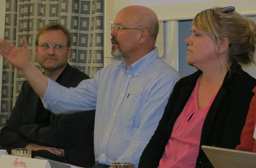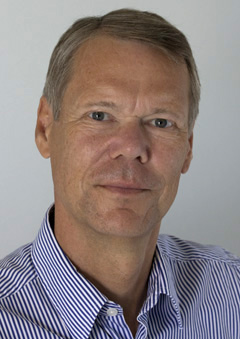The Swedish Gambling Research Network (GARN) held its first meeting on April 25 to 26 in Stockholm. More than 20 researchers participated – veterans as well as doctoral students who have just begun gambling studies.
During the first day of the network meeting there were lectures by invited guests. Jessika Svensson (who is also a researcher) represented the Swedish National Institute of Public Health and Maria Wennerberg Sedigh represented the Swedish Gambling Authority. They spoke on the subject “The development in the gambling sector in Sweden and internationally,” from their respective perspectives.
A lively panel discussion was held under the theme “Swedish gambling regulation and research in ten years from now” with participants Petra Forsström (SPER), Rebecka Johansson (Svenska Spel) Hillevi Stuhrenberg (Betsson), Thomas Nilsson (Sustainable Interaction) and Jörgen Hettne (SIEPS).
Inspired by what was said during the panel discussion, and by comments from network members, my own reflection on the future of gambling is that gambling companies will face some serious problems.
- A strong trend in the past 30 years is the diversification of services on the gambling market. This trend will continue.
- The increasing diversification of services means that gambling becomes more individualistic; gone are the days when many people in the neighborhood or at the workplace had a particular gambling game as a shared interest.
- The demise of gambling as a commonly shared interest means lower participation rates. This is already apparent, down from 89% of Swedes gambling at least once a year in 1998 to 73% in 2010.
- In order to counter consumers’ weakened interest in “classic” forms of gambling, gambling companies need to integrate gambling in other activities. This is also already apparent, as in the commercial merging of charity and lotteries, and in “social gaming” when gambling is integrated in social networks on the internet. This means lower profit margins.
- A partial license system will probably be implemented in Sweden within 10 years. Increased competition and higher taxes will lead to lower profit margins for the companies.
- There are thus two reasons for believing that competition will get stiffer and profit margins lower.
- Conclusion: gambling companies will face tough times in ten years from now. “Classic” gambling, such as sports betting and lotto games, will probably be less popular than today.
The second day of the GARN network meeting was devoted to presentations, including research on the responsible gaming tool PlayScan, a new book on “Responsibility and markets” (gambling is the case study), and analyzes in SWELOGS in-depth study comparing people with and without gambling problems. I briefly presented the Conceptual Framework of Harmful Gambling Project and held a lecture about publishing in the field of gambling studies. At the meeting, a number of plans were drawn up for GARN’s future activities to promote Swedish gaming research.
The network GARN is funded by FAS (The Swedish Council for Working Life and Social Research) and has currently resources to hold two meetings per year for three years. GARN is open to all researchers studying gambling and gaming in a social, cultural or psychological perspective. GARN is administered by SoRAD (Centre for Social Research on Alcohol and Drugs) at the University of Stockholm.


